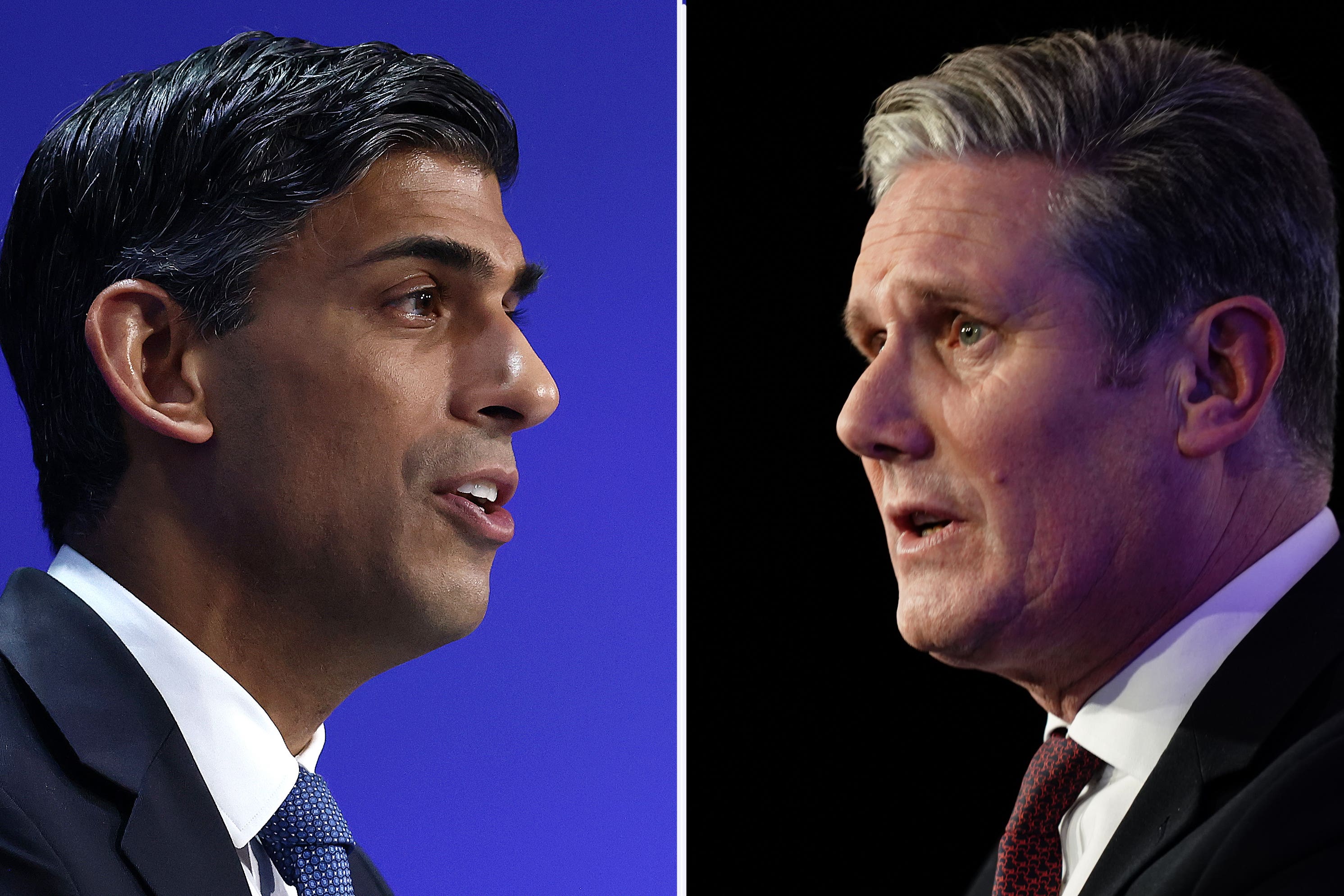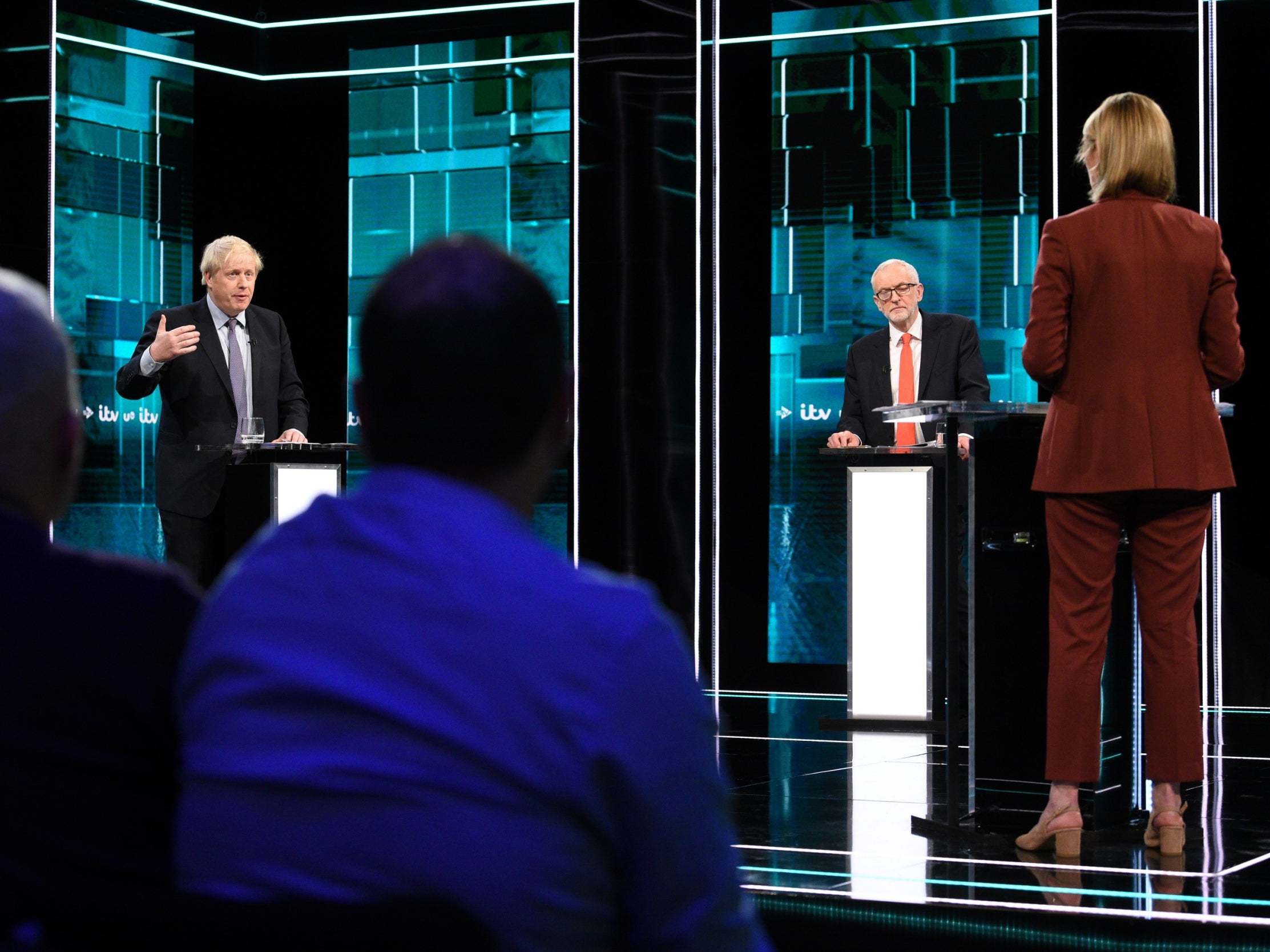Keir Starmer is already the ‘winner’ of next week’s TV election debate
On Tuesday – for only the third time in British history – the two leading candidates to be prime minister will face off against each other on live television. Chief political commentator John Rentoul predicts another poll boost for Labour


Shortly after 10pm on Tuesday, several instant polls will be published revealing who the viewers thought “won” the first televised election debate between Rishi Sunak and Keir Starmer.
The prime minister challenged the Labour leader to the debate because he thinks he understands the issues better and is quicker and sharper than his opponent; but Starmer accepted the challenge because he thinks he has public opinion on his side.
I think Starmer is right, and that the pollsters will declare him the winner.
As the underdog, Sunak has to take risks and hope that something breaks in his favour, but the odds remain stacked against him.The public know who Sunak is, and they have, over time, formed a negative view. It will take quite a shock to change that, but Sunak is plainly a better debater than Starmer. He usually wins the argument at Prime Minister’s Questions, but he “wins the argument” in the Jeremy Corbyn sense. Corbyn said he “won the argument” at the last election, and look how that worked out.
Sunak will, however, probably destroy Labour’s policies in the debate. They will fall apart in his hands, because most of them are poorly constructed. But Starmer will say “14 years” and “change”, the audience will clap, and the opinion-poll respondents will click his name on the online survey.
We had a foretaste of the policy disaster this morning, when Starmer had to admit in an interview on BBC Radio Scotland that the party’s Great British Energy will not actually produce any energy. “It’d be an investment vehicle, not an energy company,” Starmer said.
This is the trouble with making policy by focus group. The focus groups love the idea of a publicly owned British energy company to supply clean electricity. But none of those buzzwords can overcome the laws of physics, let alone the laws of supply and demand that make green electricity so expensive in the short term.
That is why I thought there were too many pledges on Labour’s pledge card. The original New Labour pledge card in 1997 had five. So did this one, until shortly before it was launched two weeks ago, when a sixth – “a new Border Security Command” – was added, because the Channel boats were an unavoidable election issue.
At that point, Great British Energy should have been dropped, to keep the number of pledges to five, so that Labour politicans can remember them in interviews. The aspiration is fine, but the company is a gimmick, and the party should have been ruthless enough to ditch it even though it polls well.
Still, it will poll well in the TV debate, if it comes up. Sunak will explain why it is rubbish, and Starmer will say “14 years” and “change” and “Sir Patrick Vallance, the government’s former chief scientific adviser, supports Labour’s green policies”.
The Labour leader will deliver his lines better than he usually does at PMQs, when he has his head down, reading from his script. In the TV debate, he will have to remember his lines and he will have to improvise. He won’t need his new £2,500 spectacles (he has just registered a donation from Waheed Alli, the Labour peer, for “multiple pairs of glasses”).

Starmer has learned on the job, and is better at public speaking than he used to be, his confidence boosted by the feedback loop of a 20-point lead in the opinion polls. So he should come across well, or well enough for most people not to notice that Sunak has shredded his policies.
Starmer also has the advantage of being relatively unknown. I heard a woman in a focus group, a few weeks before the election was called, say: “Who’s Keir Starmer?” Most people recognise him, but they know little about him. Even though it has become a joke in political-media circles that he always says his father was a toolmaker, a More In Common poll found that only 11 per cent of the public knows it. So if he comes across as pleasant and reasonable, it may be, for many voters, the first time that they have really paid attention to him.
The only time a TV debate has shifted public opinion was the first one ever, in the 2010 election, when Nick Clegg, the Liberal Democrat leader, was an unknown quantity and surprised everyone by coming across as pleasant and reasonable.
There haven’t been that many TV debates in British elections. There was one in 2015, in which David Cameron was at the end of a row of seven party leaders. In 2017, Theresa May sent Amber Rudd as her substitute in another seven-way debate. In 2019, there were two head-to-head debates between Boris Johnson and Jeremy Corbyn, in which Johnson played astute defensive politics and Corbyn couldn’t disrupt the race.
So Tuesday’s debate will be only the third time that two possible prime ministers have faced each other one-to-one in this TV format. The stakes are high because the audience is likely to be huge. And I think Keir Starmer will be declared the winner.






Join our commenting forum
Join thought-provoking conversations, follow other Independent readers and see their replies
Comments